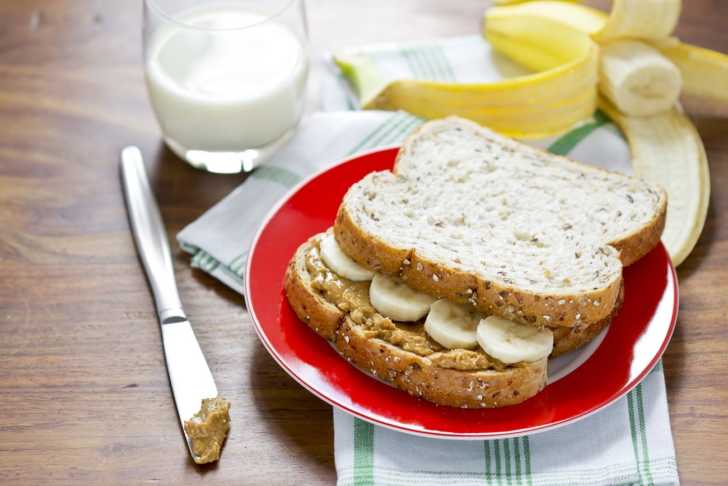Who needs to refuel post workout
Diet significantly impacts athletic performance, but who needs to refuel after training and who doesn’t?

Diet significantly impacts athletic performance, but who needs to refuel after training and who doesn’t? Intensity and duration of the exercise determine whether or not an athlete will benefit from refueling post exercise. Let’s look at the different nutritional requirements for different sports at varying duration and intensities. If you’ve ever wondered whether or not you should be incorporating specific eating habits related to your sport, keep reading.
Why is refueling important?
Muscles require continuous repairing and fueling. It’s not just what we eat before and during the workout that is important for optimal performance. We also need to replace lost fluids, electrolytes, proteins, and glycogen AFTER the workout or event.
What is glycogen? Glycogen is the storage form of glucose, the fuel our cells – especially muscle cells – use for energy. Thankfully, we store glycogen in our liver and muscles, ready to be broken down as needed to maintain adequate blood glucose (AKA blood sugar) and continue delivering fuel to our cells. We do not want our glycogen stores depleted because depleted glycogen stores means your muscles will run out of gas and won’t have the fuel they need to keep performing.
Athletes must eat enough carbohydrate-rich foods before and after exercise in order to maximize and replenish muscle glycogen stores. And meeting protein needs is crucial for promoting muscle protein synthesis. Carbs fuel muscles, while protein builds and repairs muscle.
Hydration is a must before and after exercise for body temperature regulation and preventing heat illness. Electrolytes (sodium and potassium) are also needed to maintain fluid balance.
Exercise duration

It takes me 20 minutes to walk to my favorite coffee shop from my office, 40 minutes round trip. Some days this is my exercise and on other days it’s yoga and on other days it’s walking on the treadmill while watching Netflix. My friend Elisia is decked out in Nike and Under Armour at all times because she truly at any moment might decide to squeeze in some training for her next marathon or Ironman. My friend Elisia must refuel post workout. I do not need to refuel post workout.
The American Heart Association (AHA) defines exercise as “anything that makes you move your body” and use energy. So the gardening you did last weekend and the leisurely walk you and a friend went on both count as exercise. But unless you are exercising for an hour or more or at high intensity, refueling post workout is not necessary. For those of us who are moving for less than an hour at a time, the regular balanced meals and snacks we are eating will do the job.
Exercise lasting one hour or more requires post-workout refueling. If this is you, you’ll want to replenish the glycogen/glucose used for fuel as well as the electrolytes lost through heavy sweating.
Intensity
The word exercise means different things to different people. Some add exercise to their day by walking to lunch rather than ordering food delivery at work. Others are weekend warriors on the Stairmaster at the gym or in yoga class. Then there are the athletes – like my friend – who exercise and train at a level that requires attention to eating for top performance.
The AHA defines different levels of intensity to help people understand how much exercise per week is heart healthy (more for light-moderate exercise intensity and less when it’s high intensity). Examples of moderate activity (that do not require post exercise refueling) listed on the AHA’s website include:
- Walking (not race walking)
- Bicycling slower than 10 miles per hour
- Water aerobics
- Doubles tennis
- Ballroom dancing
- Gardening
Examples of higher intensity exercise include:
- Race-walking
- Jogging
- Running
- Singles tennis
- Aerobic dancing
- Bicycling faster than 10 miles per hour
- Jumping rope
- Heavy yard work like continuous digging
- Uphill backpacking
WHEN and WHAT to refuel with

Many athletes are focused on refueling the second they stop exercising, out of fear they will miss the targeted one-hour glycogen replacement window. The one-hour window is a very good goal for athletes who are doing a second workout within six hours of the first (for example, soccer tournaments or two-a-day trainings for the triathlete). Shooting for refueling within the hour after exercise is less necessary when it wasn’t a depleting workout or you don’t have another workout or event within the next 24 hours. Keep in mind that although it happens at a slower rate, refueling continues to occur beyond this 1-hour window and adequate refueling can happen with consumption of carb-rich snacks and meals for the 24 hours post activity.
Muscles want a carb-to-protein ratio of between 3:1 and 4:1. For optimal glycogen replenishment, recovery meals and snacks should contain a carbohydrate base (rice, bread, potatoes, pasta), plus 15 to 25 grams of protein (1/2 cup of chopped chicken breast contains 22 grams protein, ½ cup cottage cheese contains 15.5 grams protein).
Standard foods are just as effective as engineered sports nutrition products at replenishing electrolytes and used glucose stores. Some easy post workout combinations that provide a nice amount of both carbs and protein include:
- A peanut butter sandwich
- Cottage cheese and fruit
- Tuna and crackers
- An omelette and toast
- Hummus and flatbread or pita bread
- Cereal and milk
- A yogurt parfait with yogurt, berries, and granola
- An egg salad sandwich
- Dried fruit and nuts
Hydrate with sports drinks when exercise is all day, but when replenishing fluids and electrolytes after a single event or hard workout, milk, chocolate milk, and orange juice have better nutrient profiles for carbohydrate, protein, and electrolytes.
SKM: below-content placeholderWhizzco for CRH

